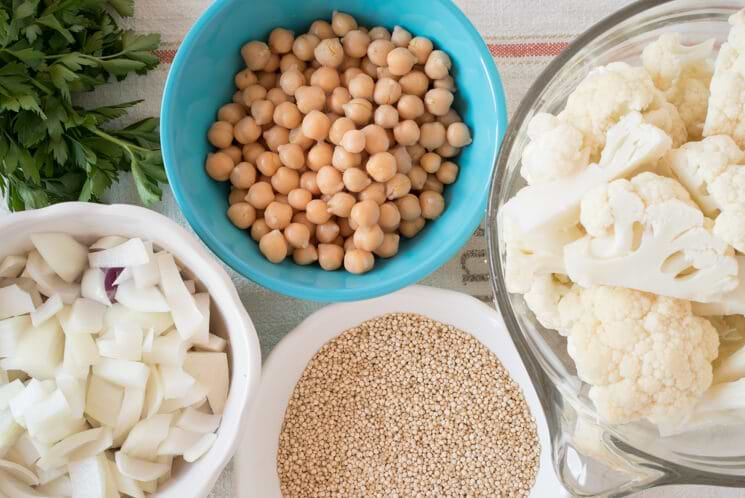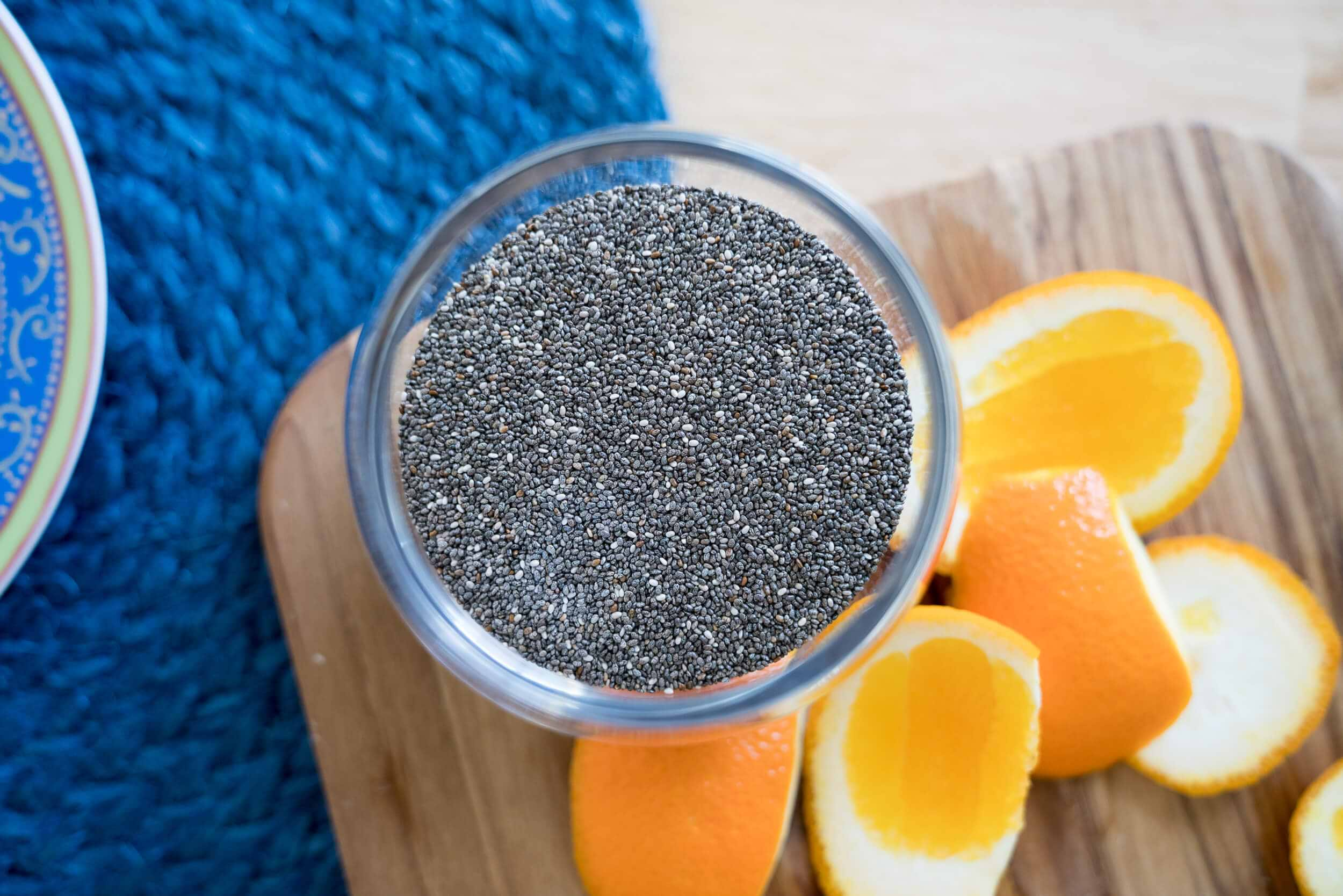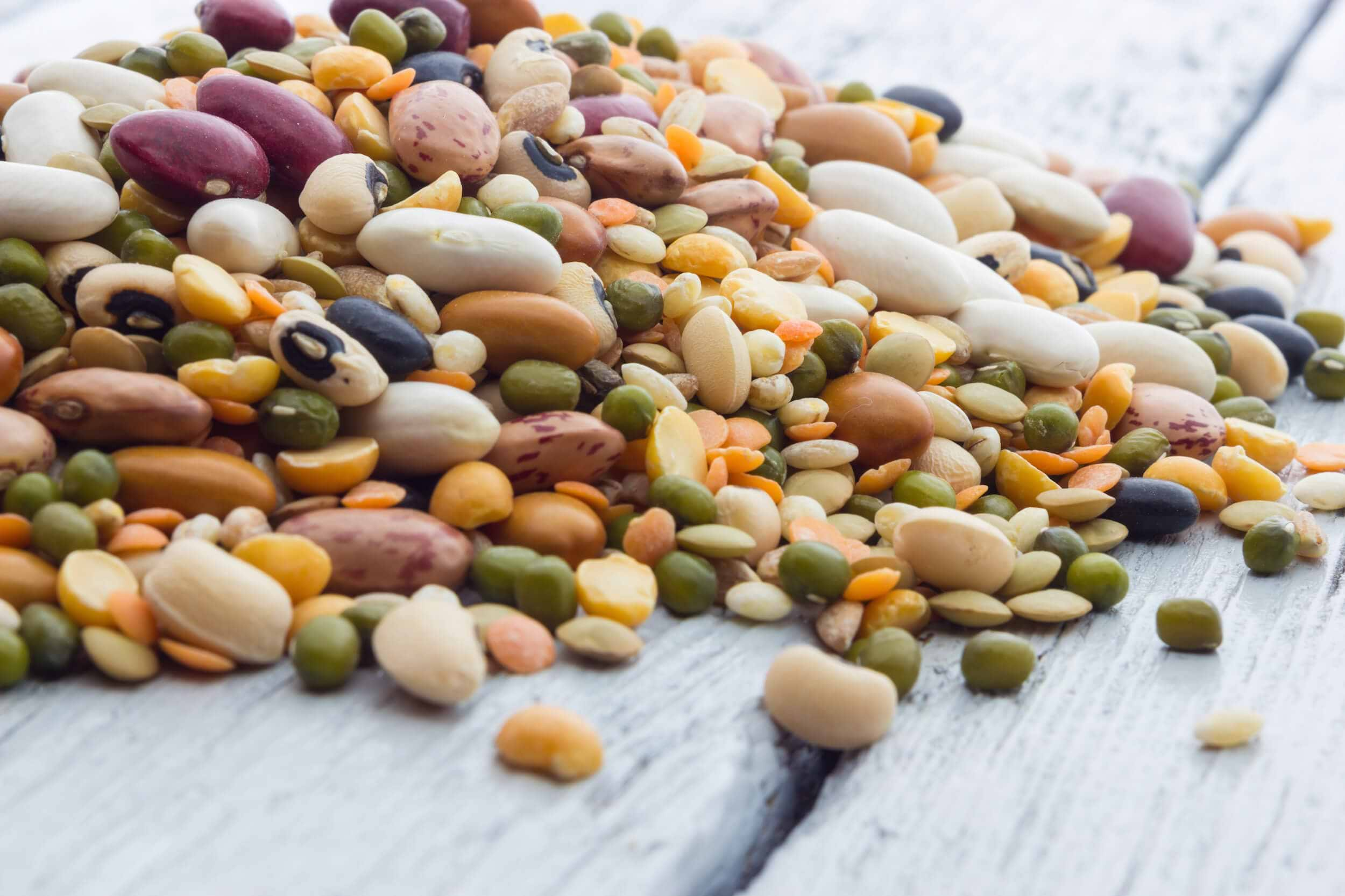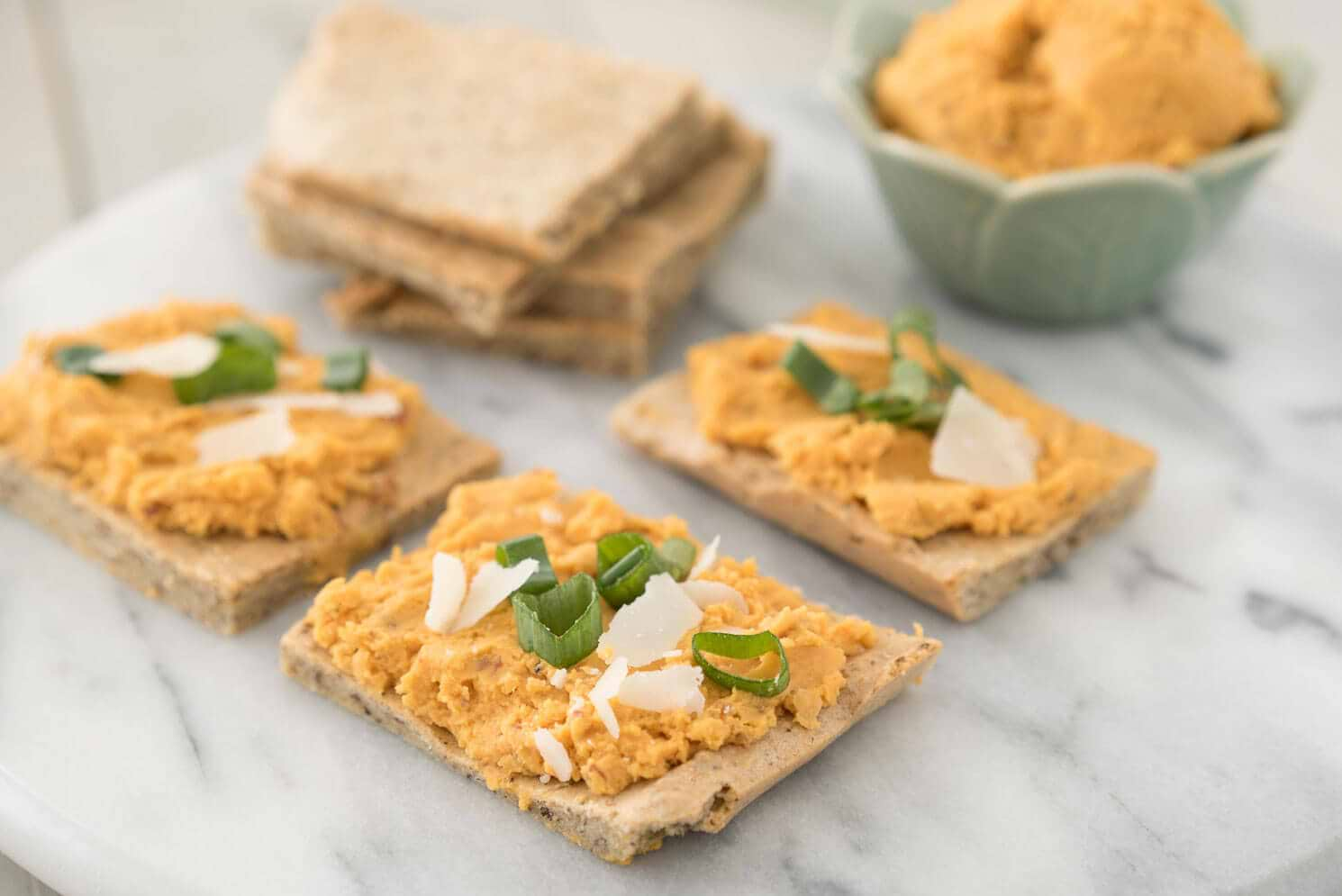Welcome to thoughtful, organic beauty
Hello Joyous is an organic, plant-based, sustainable beauty brand here to bring more joy to your day.
When you think about fiber, what’s the first thing that comes to mind? Your grandma’s “Bowel Buddy Biscuits,” bran buds, prunes, a neon plastic container from the pharmacy?
I get it, fiber doesn’t have a sexy reputation. But I promise that once you get to know it better, you’ll change your mind. So please, allow me to introduce you to my soulmate carbohydrate – fiber!
Fiber is found exclusively in the plant kingdom from foods like fruits, veggies, whole grains, nuts, seeds, and legumes. There are two types of fiber: soluble, which dissolves in water, and insoluble, which does not.
Fiber is a type of carbohydrate but unlike other carbs, it doesn’t effect blood sugar or contain calories. In fact, it’s not considered a “nutrient” at all because it contains no vitamins, minerals, or energy. Humans can’t digest it.
So… why bother eating fiber at all? Good question!

Fiber might not give you energy, build your muscles, or provide direct nutrition… but it’s got a whole bunch of other benefits that are going to blow your mind.
Fiber Makes for Epic Poops
Did you know that the lowest incidents of colorectal cancer occur in people who pass over one pound of stool per day. Yes, that means 1 pound of poop! Fiber naturally increases the amount of poop your body makes by adding bulk. If you’re prone to loose or hard poops, fiber can normalize them. That means you get to feel like a million bucks after your morning visit to the restroom.
Fiber Feeds Your Microbiome
We’re all working hard to create a better relationship with our gut bacteria. Taking a daily probiotic is fantastic, but getting enough fiber in your diet is just as important. The fiber actually acts as food to feed your microbiome. A high fiber diet is like sending your friendly gut bugs a muffin basket—they’ll definitely appreciate it.
Fiber Literally Cleans Out Your Body
You know that super clean, light, awesome feeling you have after an epic poop? It’s probably in part due to the fact that you just eliminated a whole pile of toxins from your body. Fiber has been shown to reduce levels of LDL (aka. “bad”) cholesterol, lower blood pressure, and even bring down inflammation.
Fiber Keeps You Feeling Full
Find out for yourself! Take this breakfast challenge:
Day 1: make a smoothie with banana, mango, spinach, cashews, and almond milk.
Day 2: make a smoothie with pear, raspberries, spinach, chia seeds, and almond milk.
Pay attention to what time you feel hungry next and which smoothie keeps you fuller for longer. The pear and berry smoothie contains an additional 20g of fiber and will keep you feeling satisfied for hours.
Fiber Boosts Metabolism & Balances Your Blood Sugar
Thanks to it’s slow-digesting nature, high fiber meals can actually lower the rate at which sugar enters your blood stream. Not only is this great for people who must keep an eye on their blood sugars, it can also help prevent Type 2 Diabetes from occurring in the first place.
Because fiber is hard to digest yet contains no calories, it gives your metabolism a boost similar to a short workout.
How to Get More Fiber in Your Diet
In terms of quantity, I recommend most healthy people aim for an absolute minimum fiber intake of 35g per day. This is the amount required to prevent disease, but not necessarily to support optimal health. The Standard American Diet typically provides less than 20g, but humans evolved eating over 100g per day. We are eating less fiber than ever, and this may be a contributing factor to our chronic disease epidemic.
Now that you’re sold on the benefits, let’s talk about how you can easily boost your fiber intake.
Heads-up: start slow, since too much extra fiber too fast can cause bloating and abdominal discomfort. Try incorporating one of these tips every day for a week before adding another.
These are 5 simple ways you can easily meet your minimum fiber intake.
Embrace the seedy side of life

You can easily start adding seeds to your meals! Just two tablespoons of whole flax or chia seed will provide an extra 6 grams of fiber. Add them to your smoothies, oatmeal, yogurt, and even your quinoa salads. I love snacking on these High Fiber Flax Crackers between meals.
Bake like a champion
Adding fiber to baked goods is incredibly easy by switching to whole grain flours. You can also try adding ground flax to recipes by replacing up to ¼ of the flour in a recipe. Psyllium powder can also be added to items like breads and muffins to add fiber and keep them moist. Start with adding just 2 tablespoons per recipe.
Incorporate plant-based proteins

A single cup of legumes (like chickpeas or lentils) will usually clock in at 10g to 15g of fiber unlike animal-based proteins, which provide no fiber at all! Choosing plant-based proteins at least once per day is a great way to get the benefits of fiber, while also enjoying variety and taking care of the environment.
Choose berries often
Of all fruits, berries are highest in both antioxidants and fiber! In fact, try to get one cup of berries every day. Reach for berries more often than bananas, mangos, melon, grapes or other common fruit choices.
Up your snacking game
Popular snacks like potato chips, cheese and refined crackers are naturally low in fiber. But fear not, snack-a-holics! High fiber alternatives exist, and snack time can be a great opportunity to boost fiber intake. Choose raw veggies with hummus, fiber-rich dips, and chia pudding as high fiber alternatives to your favorite snacks.

Simply adding more fiber to your daily meals will decrease your risk of colorectal cancer, Type 2 Diabetes, heart disease, hypertension, lower your cholesterol, boost your metabolism, and keep you feeling full.
Let me know if you end up trying any of these tips, or if you have any favourite tips for getting more fiber into your diet!
Very informative information. Thankyou
ReplyHappy to hear it was helpful for you Anne! :) Rachel - Joyous Health Team
So of course the aim is to get ALL required fibre from proper nutrition, but what are the best ways to supplement it in the most natural and healthy way? I already eat lots of it and enjoy a healthy system, but think it wise for me to get even more in. Thanks!!!
ReplyHey Tyn, I would treat foods like ground flax and chia as fiber supplements. Ideally, if you are getting a lot of fiber in your diet, you shouldn't need to supplement it :) Rachel - Joyous Health Team
Really appreciate the smoothie recipe comparison. Something easy to implement.
ReplyAwesome Elena! Glad you found it to be so helpful :) Rachel - Joyous Health Team
I need to lower my LDL and total cholesterol and my doctor recommended more fiber! Yeah. I really thought I was consuming plenty of fruits and veggies daily, therefore I will add seeds and/or legumes daily as mentioned above. Thanks, Margie
ReplyHey Margie! Yes, fiber can be super helpful in managing cholesterol levels. You may also be interested in reading this article which explains cholesterol in greater depth: https://www.joyoushealth.com/27157-blog-the-truth-about-cholesterol-and-how-to-manage-it Rachel - Joyous Health Team
I find it hard to fit plant-based proteins daily. (I feel like beans/lentils take a lot of time and prep). Any tips?
ReplyHi Vesna! Do you use any protein powders in your smoothies? Also, hemp is a great source of protein too. I like to mix it into pasta sauce or sprinkle on salads. Also, eating nuts and seeds while not an amazing source of protein, they contain some protein. Not sure if you've seen this video yet, but this will give you some ideas for plant-based proteins. https://www.joyoushealth.com/27068-blog-8-sources-of-plant-based-protein Just copy and paste that into your browser (sorry it doesn't hyperlink). Hope that helps! Joy
I encourage my patients to consume plenty of broccoli for fibre too. At 5.9 grams per cup, it comes just under the beans, but has tons of other health benefits. Commonly for lunch, I'll steam 2 cups of broccoli, add some veggie broth and half a cup of lentils. Plant-based, 20 g of fiber, filling and delicious!
ReplyHey Pamela, That's amazing! Such a plantiful lunch option :) Your patients are lucky to have you! Rachel - Joyous Health Team
Hi there... I am trying to increase my fiber intake but it's giving me a lot of tummy issues... when you say to do it gradually, could you break it down a bit more? How much/how often? Thank you!
ReplyHey Meghan, Just take it slow and start with eating fibre-rich fruits and vegetables instead of focusing on the flax and chia. Don't stress about jamming too much fibre in right at the get go, as it can cause digestive upset as you might have experienced. Make sure you're drinking enough water as well :) Rachel - Joyous Health Team